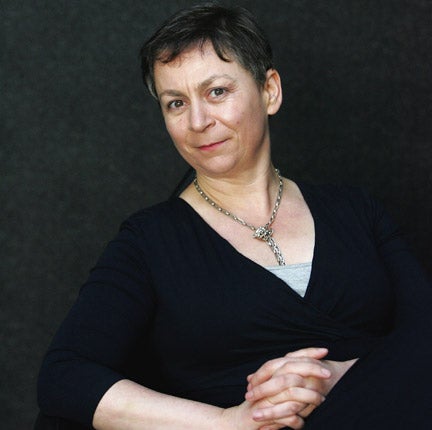The Forgotten Waltz, By Anne Enright
This wry, philosophical take on office infidelity is hilarious at times, while also making you re-evaluate everything a novel can be

It has become fashionable lately to complain of "fiction fatigue".
David Shields' book Reality Hunger argued that we've all had enough of novels. His bone of contention? Their plots and tricks are fake and phoney and can't tell us anything about real life. "Conventional fiction teaches the reader that life is a coherent, fathomable whole," writes Shields, when really, life "flies at us in bright splinters".
Then along comes a novel such as The Forgotten Waltz that blows the whole game right open again. Anne Enright picks up those bright, real-life splinters and blinds you with them. The Forgotten Waltz is an achingly brilliant piece of writing on passion and delusion. Comparisons to Madame Bovary are not overblown, not because it is a wry, clever, philosophical take on adultery – although it is – but because it makes you re-evaluate everything a novel can be. If anything more real is published this year, I will happily submit to a bungled club-foot operation.
It's not as if Enright has anything to prove (The Gathering won the Man Booker Prize in 2007), so she opts for a premise which is dazzlingly simple: the anatomy of a love affair between two married people. Straightforwardly told as first-person narration, The Forgotten Waltz is the recent life story of Gina Moynihan, a young woman living in Dublin in 2009. The "love of her life", in Gina's words, is Seá* Vallely, an older married man and sometime work colleague. (She gets him his job.) Initially, she neither knows nor cares about the state of Seán's marriage, just so long as she can have him for herself. Gina herself is married – and not even unhappily – to Conor, whose feelings and thoughts are damningly conspicuous by their absence. So far, so Flaubert.
The references don't stop there. Just as Emma Bovary is consumed with ribbons, flounces and velvet trimmings, so Gina's mind is forever alighting on designer label details. And she can't stop monitoring the Irish property market. Blind to her own deceit and the increasingly obvious damage to her lover's young daughter Evie, Gina is far more concerned that her mother's house is falling in value. But do we hate her for it? No. We love her all the more. Flaubert said of his adulteress, "Madame Bovary, c'est moi." Enright seems to have held a similar thought in mind. There's a little of Gina in all of us. It might not be pleasant. But it's frighteningly true to life.
Gina's behaviour is deliciously callous. She even inches into stalker territory on occasion. But the narrative holds the reader on a moral tightrope. Is Gina a myth-busting heroine or a deluded bunny-boiler? And what about Seán, and his seemingly detached wife, Aileen? Where does the balance of blame lie? Enright is like a master puppeteer, playing with your emotions while you try to work out whether Gina's account can be believed.
The underlying commentary on office romance is hilarious. Gina wonders whether she can really love a man who is pretentious enough to use a fountain pen in meetings. (Later: "I even got to like his fountain pen.") She is "stung" to discover that Seá* once wrote a career appraisal in which he described her as "most ideally suited to a secondary role". Priceless.
The garrulous narratorial voice is a joy: funny, companionable, but always slightly unhinged. Gina has a kind of life-affirming death wish: "I did not feel guilty, that afternoon in Gstaad," she says of her first encounter with Seán, "I felt suicidal. Or the flip side of suicidal: I felt like I had killed my life, and no one was dead. On the contrary, we were all twice as alive." This is where Enright departs, playfully, from Gina's 19th-century counterparts, Anna Karenina and Emma Bovary. Suicide is no option for a practical woman.
There is far more to The Forgotten Waltz, though, than a feminist reworking of the stereotypical portrait of the other woman. The novel feels like a profound comment on the strangeness of life, and how difficult it is for anyone to understand their own motives when they embark on a course of action. Enright is not avoiding moral judgement for the sake of it. The novel is neither a condemnation nor an endorsement of infidelity. It's something much bigger, an awe-inspiring recreation of life as it is really lived: confusing, self-contradictory, frustrating, mundane.
It would be entirely missing the point, then, to complain that this novel doesn't have much of a plot. Enright has created an entirely believable psychological world, where nothing much needs to happen because you are quite happy to stay in the moment with her words. This is what makes it such an important book, and a must for the Booker shortlist.
For anyone who hungers, like Shields, for reality to come in the form of a novel (or who had given up on believing that such a thing was even possible), this book is enough to restore your faith in the power of fiction.
To order any of these books at a reduced price, including free UK p&p, call Independent Books Direct on 08700 798 897 or visit independentbooksdirect.co.uk
Subscribe to Independent Premium to bookmark this article
Want to bookmark your favourite articles and stories to read or reference later? Start your Independent Premium subscription today.

Join our commenting forum
Join thought-provoking conversations, follow other Independent readers and see their replies